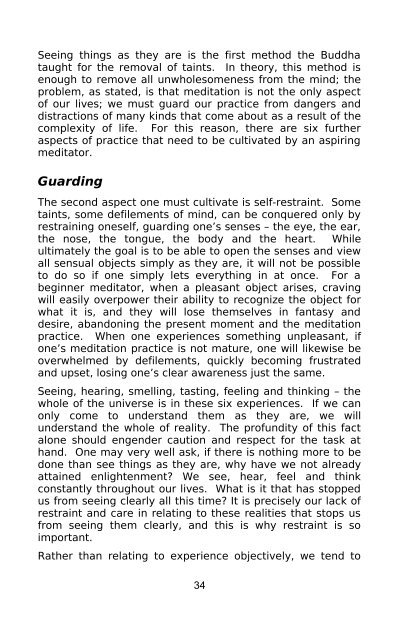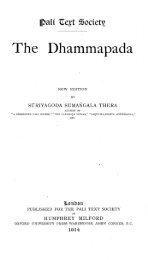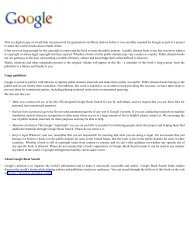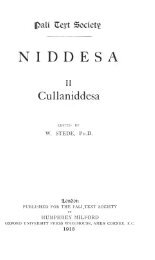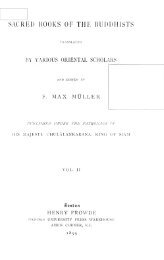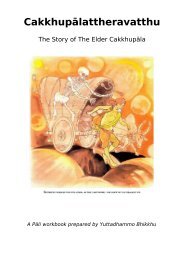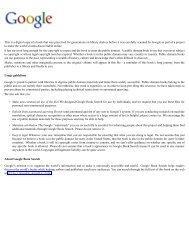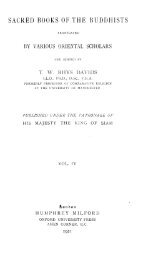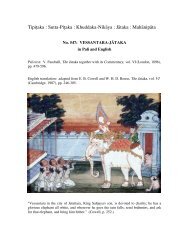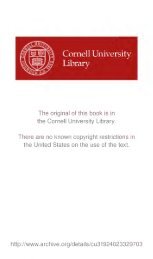Lessons In Practical Buddhism - Sirimangalo.Org
Lessons In Practical Buddhism - Sirimangalo.Org
Lessons In Practical Buddhism - Sirimangalo.Org
Create successful ePaper yourself
Turn your PDF publications into a flip-book with our unique Google optimized e-Paper software.
Seeing things as they are is the first method the Buddha<br />
taught for the removal of taints. <strong>In</strong> theory, this method is<br />
enough to remove all unwholesomeness from the mind; the<br />
problem, as stated, is that meditation is not the only aspect<br />
of our lives; we must guard our practice from dangers and<br />
distractions of many kinds that come about as a result of the<br />
complexity of life. For this reason, there are six further<br />
aspects of practice that need to be cultivated by an aspiring<br />
meditator.<br />
Guarding<br />
The second aspect one must cultivate is self-restraint. Some<br />
taints, some defilements of mind, can be conquered only by<br />
restraining oneself, guarding one’s senses – the eye, the ear,<br />
the nose, the tongue, the body and the heart. While<br />
ultimately the goal is to be able to open the senses and view<br />
all sensual objects simply as they are, it will not be possible<br />
to do so if one simply lets everything in at once. For a<br />
beginner meditator, when a pleasant object arises, craving<br />
will easily overpower their ability to recognize the object for<br />
what it is, and they will lose themselves in fantasy and<br />
desire, abandoning the present moment and the meditation<br />
practice. When one experiences something unpleasant, if<br />
one’s meditation practice is not mature, one will likewise be<br />
overwhelmed by defilements, quickly becoming frustrated<br />
and upset, losing one’s clear awareness just the same.<br />
Seeing, hearing, smelling, tasting, feeling and thinking – the<br />
whole of the universe is in these six experiences. If we can<br />
only come to understand them as they are, we will<br />
understand the whole of reality. The profundity of this fact<br />
alone should engender caution and respect for the task at<br />
hand. One may very well ask, if there is nothing more to be<br />
done than see things as they are, why have we not already<br />
attained enlightenment? We see, hear, feel and think<br />
constantly throughout our lives. What is it that has stopped<br />
us from seeing clearly all this time? It is precisely our lack of<br />
restraint and care in relating to these realities that stops us<br />
from seeing them clearly, and this is why restraint is so<br />
important.<br />
Rather than relating to experience objectively, we tend to<br />
34


